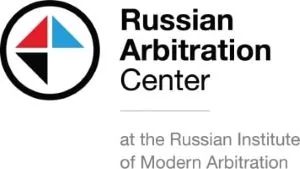Arbitration Practice
Libya's "Red Flags" Raised over the ICC Award
The Paris Court of Appeal set aside an ICC arbitral award in the dispute between the French company Sorelec and Libya.
Libya managed to prove the existence of "serious, specific and consistent" indications of corruption in the conduct of the state's official in March 2013 in signing the settlement agreement underlying the award. Based on the terms of the settlement agreement, Libya was to pay Sorelec EUR 230 million over 45 days after the partial award, and, if it failed to do so within that term, the tribunal was to render the final award, this time ordering a payment of EUR 452 million.
Libya did not pay the amount ordered in the partial award within the required time and instead applied to the Paris Court of Appeal. The Paris Court of Appeal set the award aside, since the minister who had signed the settlement agreement on Libya's behalf fraudulently colluded with Sorelec, violating the "French conception of international public order." According to the Court, political uncertainty in Libya brought upon circumstances that were highly conducive to fraud and corruption. The Court believed that the "red flags" evidencing corruption included the circumvention of national procedures, the lack of any evidence of negotiations on the substance of the settlement agreement or its terms.
The UK Supreme Court has considered the application for removal of an arbitrator due to his failure to disclose information on new appointments in other cases involving one of the parties to the dispute (Halliburton v. Chubb case).
The underlying dispute arose after the explosion of the US-owned Deepwater Horizon oil platform in 2010. Halliburton, one of the three companies responsible for the damage caused to the US, initiated an arbitration against the insurance company Chubb due to the latter's refusal to compensate damages.
Halliburton's counsel had doubts as to the impartiality of the presiding arbitrator, since he failed to disclose that he had consented to being appointed in two more disputes triggered by the same circumstances. In response to such doubts, the English High Court and the Court of Appeal resolved that the presiding arbitrator's appointment for the resolution of other disputes did not amount to prejudice and was a "regular feature" of international arbitration. Then, Halliburton appealed to the Supreme Court.
The Supreme Court confirmed that an arbitrator is under a primary duty to act independently and impartially and the ensuing duty to disclose information if there are reasonable doubts as to his/her impartiality. Nevertheless, the Court, in applying the informed and fair-minded observer test, held that in this case, a new appointment does not raise reasonable doubts.
On Scythian Gold and the Need for Proper Disclosure
Ukraine succeeded in its recusal of the Dutch judge of the Amsterdam Court of Appeal Duco Oranje in the case concerning the fate of the "Scythian gold" – 500 golden artifacts from Crimea. As a ground for its application, Ukraine invoked the judge's disclosure of false information on his previous work with a Yukos case counsel.
Thus, the judge erred in stating the dates when he quitted Clifford Chance ten years ago and when he cooperated with the lawyers of the Dutch law firm Houthoff, that represented Russia in a litigation concerning the Yukos assets.
In examining the challenge, the Court ruled that by his conduct the judge undermined the party's trust in the Court, which could "result in prejudice." And although it was clear that the memories of events of ten years ago would not always be accurate, nonetheless, the panel on recusals stated that the judge's errors were not limited to one inaccuracy or slip, while the judge could double-check some of these inaccuracies himself. The panel noted, however, the challenge of Duco doesn't mean, in any event, that the judge expressed Russia's opinion on the Yukos cases, and Ukraine's position in this regard was unsupported.
Haley v Haley: Annulment of Family Law Arbitral Awards in England Is Now Easier
Due to significant delays in national courts, the Haleys from England decided to conclude an arbitration agreement to resolve their dispute on divorce and payments to the ex-wife. The ex-husband, however, disagreed with the resulting award and filed an application to set it aside with a national court.
In its judgment, the Court of Appeal arrived at interesting conclusions: instead of strict bases for challenging arbitral awards under the Arbitration Act 1996 (AA 1996), in cases on financial remedies, where one party wishes to challenge the award, courts should apply the general criterion for challenging decisions of the courts of first instance.
The principal consequence of this decision is that now, it will be easier for the parties to challenge an award on financial remedies before national courts. The decision upset those who relied, first and foremost, on arbitral awards being practically impossible to challenge. However, the English family lawyers believe, such court practice will undoubtedly make arbitration more attractive for many families that used to be wary of the difficulties associated with setting aside arbitral awards.
A South African Athlete to Appeal to the European Court of Human Rights
The South African athlete and Olympic middle-distance runner Caster Semenya will continue her fight for the right to compete, limited due to her intrinsically high testosterone levels, at the European Court of Human Rights.
Earlier, the athlete tried to challenge the ban on participation in several women's competitions first before the Court of Arbitration for Sport (CAS) and then before the Federal Supreme Court of Switzerland. Nevertheless, the Swiss Court held that the IAAF requirement to the effect that some female athletes take medicine or undergo the respective surgery to be able to compete in women's 400-1,500 m competitions, "did not violate the public policy of Switzerland."
On 3 November 2020, the Commercial (Arbitrazh) Court for the Moscow District upheld the ruling of the court of first instance that refused to set aside the arbitral award in question.
In support of their arguments, the applicants submitted that the arbitration agreement had been signed by only one of the seven respondents. Yet, the Moscow Commercial Court, and later the Commercial Court for the Moscow District both confirmed that the arbitration clause extended not only to its signatory, but also to the affiliates of the latter.
In this regard, the Moscow Commercial Court cited the arbitral award in its ruling:
"Para. 8.2 of the Settlement Agreement stipulates that all parties thereto are responsible for the recognition by their affiliates of the final nature of that Agreement. Therefore, if the affiliates – here, meaning also any legal entities — face claims under the said agreements or in view of their termination, the arbitration clause must apply as well."
The court also noted that the respondents never contested the arbitral tribunal's jurisdiction during the arbitration and were actively participating in the proceedings in the case.
A Court Refuses to Recognize the LCIA Award in the Delovye Linii Case
The Commercial (Arbitrazh) Court for Saint Petersburg and the Leningrad Region has dismissed the application filed by Caledor Consulting Limited for the recognition and enforcement of the London Court of International Arbitration (LCIA) award of 21 January 2020 in case No. 183883 on the recovery of USD 58 million from Alexander Bogatikov.
In substantiating its dismissal, the court stated that the LCIA erred in calculating the company's value in its award. Thus, the experts engaged calculated that the company's value should be reduced by the amount of "tax risks," yet the LCIA mistakenly added this amount to the company's value instead.
The LCIA acknowledged the error, but never corrected it in the award itself, hence the Russian court reasoned that the award was inconsistent with the fundamental and basic legal principles of the Russian Federation and the constitutional legal guarantees of judicial protection of the rights of Russian nationals.
"A Document Named as an Arbitral Award"
On 16 November 2020, a Judge of the Commercial (Arbitrazh) Court of the Kaluga Region delivered a ruling refusing to issue a writ of execution for the enforcement of an award of the ad hoc arbitrator, A.A. Galich, "who called himself an arbitral tribunal acting as a sole arbitrator" and who rendered, in the opinion of the state court, "a document named an arbitral award."
In dismissing the request for a writ of execution filed by Scientific and Production Enterprise Foton LLC against Synergia LLC, the commercial court stressed, in particular, that in the absence of a right to administer arbitration, obtained under the relevant statutory procedure, A.A. Galich effectively performed administration of arbitration, which is a violation of the procedure set forth by the federal law.
Furthermore, according to the court, the tribunal was an ad hoc tribunal constituted for resolving a specific dispute only formally, while in reality it demonstrated the characteristics inherent to institutional arbitration, as confirmed by the website, containing the information on the work of the tribunal, links to case law, an association of arbitrators – the Kaluga Regional Chamber of Arbitrators and Judges – that has not obtained the right to function as a permanent arbitral institution after 1 November 2017.
The court then qualified the conduct of the parties to the dispute as a form of unlawful use of arbitration, pointing at the bad faith and abuse of rights by the parties and the arbitrator, that created an appearance of a private law dispute.
Investment Arbitration News
The Commercial Court in London has partially set aside an award in a case between Kazakhstan and the Canadian investor WWM and returned the case to the arbitral tribunal for deciding on the amount of compensation due.
In the 1990s, WWM managed one of Kazakhstan's major uranium processing plants. After the dissolution of the USSR, the parties were unable to agree on WWM's uranium mining rights and WWM's rights to sell and export uranium. WWM then filed an arbitration claim.
A UNCITRAL tribunal dismissed the claimant's expropriation claim, but found that Kazakhstan breached the obligation to accord fair and equitable treatment and ruled in favor of the Canadian investor, awarding only a part of the compensation claimed. The claimant filed its claims on an "all-or-nothing" basis, without distinguishing between alleged violations. If, however, the arbitral tribunal were to accept only some of the claims, the claimant invited the tribunal to give the parties an opportunity to submit their evidence on the amount of compensation.
The Court was to decide whether the award involved "a serious irregularity" with respect to Kazakhstan. The Court opined that the award paid little attention to the causal link between the breach established and the eventually awarded compensation. According to the Court, the tribunal should have acted on the claimant's invitation and heard the parties on the quantum, since in that case, the outcome could have been different. The Court proceeded to set the award aside to the extent related to the amount of compensation and referred the issues of causation and quantum to the tribunal for a new award.
Enforcement of the Yukos Award Stayed
A US court granted Russia's motion for stay of proceedings on the enforcement of the USD 50 billion Yukos award until the completion of the annulment proceedings before the Supreme Court of the Netherlands.
The Supreme Court of the Netherlands previously held that enforcement of the arbitral award of over USD 50 billion in favor of the former Yukos shareholders could be suspended for the duration of the cassation proceedings.
Following that ruling, Russia applied for a stay of enforcement proceedings in the US, initiated in November 2014. The shareholders, conversely, claimed that granting Russia the stay would give it more time to siphon its assets from the US, conceal or disguise them.
In the end, the US court stayed the proceedings until November 2022, unless the proceedings before the Supreme Court of the Netherlands are completed earlier. Notably, the court dismissed Russia's argument to the effect that the COVID-19 pandemic created "uncertainty," holding that the state failed to prove that its financial stability was so dramatically affected as to constitute a sufficient reason for the stay.
An Arbitral Award Enforced over the State's Objections to the Tribunal's Jurisdiction
Ukraine failed to challenge the enforcement of the USD 112 million arbitral award secured by the Russian oil and gas company Tatneft over a major joint oil refinery seized by the Ukrainian bailiffs in 2007 after a number of judgments that deprived Tatneft and other investors of their shares in Ukrtatnafta.
Ukraine claimed that the award could not be enforced under the New York Convention as the investments had been acquired unlawfully, namely, through promissory notes issued by offshore companies in the US and Switzerland, most of which were eventually sold at a loss, and, consequently, the tribunal had no jurisdiction to resolve the dispute.
The Commercial Court in London ruled that even though Tatneft had acquired its investments in violation of Ukraine's corporate laws, the award was to be enforced, as Ukraine had not made this argument during the arbitration.
An ICSID tribunal has concluded that Egypt is liable for its treatment of the Spanish construction group Cementos La Union and its subsidiary (Cementos La Union and Aridos Jativa v. Egypt, ICSID Case No. ARB/13/29). The dispute arose after Egypt's authorities failed to secure adequate supplies of gas and power to a cement plant and demanded that the company where the claimants held a controlling shareholding pay excessive licence fees and fees for power.
Despite the award holding Egypt liable for failing to accord to investors "effective means" for the latter to file claims, and to ensure respect for their rights, the tribunal was divided on compensation of damages – the majority held that the violation in question did not entitle the investors to recover damages, since even if they had been granted such "effective means," they would still have not prevailed in the dispute – and denied the investors compensation of even a part of their claimed damages.
A Japanese Investor Opposes Spain's New Solar Energy Regime
The Japanese conglomerate Mitsui & Co has filed a new ICSID claim against Spain over its EUR 260 million solar power project. The project was Guzman Energia, a joint venture created in 2010, whose generated power was to be fed into the power grid in accordance with the reduced tariffs system in Spain effective at that time (Mitsui & Co v. Spain, ICSID Case No. ARB/20/47).
Spain, however, took a number of measures causing the solar energy tariffs to drop, which, in turn, resulted in numerous claims (around 50) totaling USD 7.3 billion.
In response, last year Spain enacted a law providing that the investors with no cases initiated against Spain could retain the rate of return of 7.39%; while the investors who had not abandoned their arbitrations and did not withdraw their claims would only enjoy the rate of 7.09%. Several investors have already presumably accepted this offer.
According to Mitsui, however, the new regime of state incentives for renewable energy sources violates the Energy Charter Treaty, since it entails a waiver by investors of new arbitrations or withdrawal of the existing claims by way of exerting further pressure on the investors' rate of return.
An Unsuccessful Challenge of Canadian Counsel
The Federal Court of Canada has refused to remove the legal team of the Canadian Government from the USD 2.5 billion NAFTA arbitration in Theodore Einarsson, Paul Einarsson and Russel Einarsson and Geophysical Service Inc v. Canada. The challenge was due to the potential conflict of interests with the former employment of one of the lawyers of the team with the company funding the claimants; the Court held that the issue was to be dealt with by the tribunal resolving the dispute.
The mentioned counsel, Ms. Alexandra Dosman, was an employee of Vannin Capital – the funder of the initial claim – at the time of its filing. By then, however, she had already received an offer from the Trade Law Bureau of Canada that represents Canada in all investor-state disputes, and completed her move there in July of the same year.
GSI sought to have Ms. Dosman eliminated from the case due to an alleged conflict of interest, as well as remove all members of the Bureau's team Ms. Dosman had liaised with. In a letter to the claimants, the Bureau agreed to temporarily suspend Ms. Dosman as a gesture of "good faith." Then GSI resorted to judicial review, asking the Court to establish a conflict of interest in the Bureau's team and ban it from working on the case.
In its judgment, the Court ruled that irrespective of whether it had jurisdiction, there was "serious doubt" as to the existence of a conflict of interests, since there was "little unambiguous evidence that she received information that would cause" such a conflict, while the Bureau's letter could not be "construed as a public matter which ought to be resolved through public law."
Potential Arbitration against Peru over Cocoa Plantations
A cocoa plantation owner, Tamshi SAC, has sent letters to the Ministries of Agriculture, Environment, and Economy of Peru as a preliminary step before filing an ICSID claim against Peru after it had to face a PEN 129 million (USD 35 million) fine imposed by the Environmental Evaluation and Enforcement Agency of Peru for continuing operations without the necessary environmental permits and for the unlawful disposal of hazardous waste in the Amazon river.
Tamshi was ordered to immediately leave the region and remove all equipment and seedlings, as well as restore the degraded forest ecosystems, "to guarantee no material adverse effects for the environment."
Notably, before it was purchased by its new owners in 2018, the company was called Cacao del Peru Norte and was notorious due to its ties with Melka Group, charged with felling over 13,000 hectares of tropical forests.
Three casino operators – the Canadian Clairvest, the Argentine-Spanish consortium Grupo Boldt Peralada, and the South African Sun International group – are preparing to file an ICSID claim against Chile over a public tender held by the Chilean Superintendency of Gambling Casinos (Superintendencia de Casinos de Juego, SCJ).
The operators are claiming that the public tender to extend 12 casino concessions all across Chile is unlawful and gives a more advantageous position to competitors, namely, the Santiago operator Enjoy that holds five resort complexes in Chile and is not a member of the SCJ. The SCJ warned Chile back in July of the possible wave of investment arbitration claims over the tender, as the tender violated the preferential rights of the investors who had obtained their concessions as early as in 2005, which allowed them to extend them for another 15 years. Furthermore, in tendering the concessions, Chile, according to the SCJ, is putting at risk the USD 1.4 billion invested by the casino operators, as well as the thousands of jobs they had created.
Arbitration News
The IBA Arbitration Committee has published its suggested amendments to the Rules on the Taking of Evidence in International Arbitration. Since their original publication in 1999, the Rules were revised only once, in 2010.
In the new version, it is suggested to focus on the issue of cybersecurity. In particular, there are plans to indicate the possibility of holding consultations on evidence-taking that may relate to the "discussion of cybersecurity and data protection issues."
Furthermore, in light of the developments of the recent months, there is a proposal to supplement the Rules with a provision allowing the arbitral tribunal, after consultations with the parties, to decide to hold a remote hearing on evidence. In that case, the tribunal and the parties may draw the protocol of such a remote hearing, indicating, for instance, which technology will be used, the time zones, and measures to ensure that the testifying witnesses would not fall under undue influence.
If approved by the IBA Council, the revised Rules and commentaries thereto will be published as early as by the end of this year and will become effective in 2021.
Sierra Leone Has Become the 166th State Party to the New York Convention
The small West African state that derives its name from the Lion Mountains not far from its capital, Freetown, deposited to the UN Secretary-General on 28 October 2020 its instrument of accession to the 1958 United Nations Convention on the Recognition and Enforcement of Foreign Arbitral Awards. The Convention will enter into force for Sierra Leone on 26 January 2021.
Under Article I.3 of the New York Convention, Contracting States may make two reservations: the so-called "reciprocity reservation" that would mean that the Convention applies only to the recognition and enforcement of awards issued in other Contracting States; and the "commercial reservation" that would mean that the Convention applies only to differences arising from legal relationships, whether contractual or not, which are considered as commercial under the national law of the State making the reservation.
Sierra Leone opted for both reservations, as well as declared that it will apply the provisions of the Convention only to the arbitration agreements and awards made and issued after the date of its accession.
Agreement Signed to Create the World's Biggest Free Trade Area
On 15 November 2020 at the online summit of the Association of Southeast Asian Nations (ASEAN), 15 states of the Pacific region (Brunei, Cambodia, Indonesia, Laos, Malaysia, Myanmar, the Philippines, Singapore, Thailand, Vietnam, as well as China, Japan, South Korea, Australia, and New Zealand) signed the Regional Comprehensive Economic Partnership (RCEP), creating the largest free trade area (FTA), encompassing almost one third of the world's GDP (29%).
The FTA provides for the reduction or complete abolition of customs duties, as well as a ban on non-tariff measures in the relations between the 15 states. Interestingly, the RCEP envisages an arbitrator panel, rather than a permanent adjudication body, for resolving disputes. Furthermore, the system for forming that panel and its issuance of reports resembles relevant procedures at the WTO.
Latham & Watkins Partner Claudia Salomon has been recommended by the ICC for election as the president of the ICC International Court of Arbitration. Next month, she is to get the approval of the ICC Executive Board.
This is especially noteworthy that Ms Salomon may become the first woman president of the ICC International Court of Arbitration in its almost 100-year-long history. She will replace the retiring president Alexis Mourre, whose second term expires next June.
The law was adopted as part of legislation formalizing the July amendments to the Russian Constitution.
It vests the Constitutional Court with the right, at the request of the President, Government or Supreme Court of the Russian Federation, to decide on the enforceability of foreign and/or international arbitral awards imposing obligations on the Russian Federation, where such an award is contrary to the Russian public policy.
Events on Alternative Dispute Resolution
On 4 December 2020, the Russian Institute of Modern Arbitration will host an annual conference that will accompany the V.P. Mozolin Corporate Arbitration Moot for Russian law students. During the Conference, the speakers will cover such issues as the influence of motives on the invalidity of transactions, the application of arbitration agreements to the participants of corporate disputes, as well as the protection of business reputation under the Russian law.
Roman Bevzenko, Olesya Petrol, and Yury Babichev will be speakers at the Conference.
Register for the Conference here.
A live stream will be available on the YouTube channel of the Russian Arbitration Center and on the website of the Russian Institute of Modern Arbitration.
The Final Rounds of the V.P. Mozolin Corporate Arbitration Moot will take place on 5 and 6 December. Every year, the Moot assembles hundreds of law school students from dozens of Russian regions, making it one of the largest and most prestigious student competitions.
This year's case covers the issues of applicability of the arbitration clause to the former CEO and participant in a company; holding liable the controlling person of the company; parallel proceedings at various arbitral institutions; and challenging a transaction as contrary to public policy and morality.
Webinar "Due Process as a Limit to Discretion in International Commercial Arbitration: Focus Russia"
On 12 November 2020, the Russian Arbitration Center, together with the New York University Center for Transnational Litigation, Arbitration, and Commercial Law held a webinar on "Due Process as a Limit to Discretion in International Commercial Arbitration – Focus Russia."
The discussion was moderated by Franco Ferrari (New York University), and the speakers included Friedrich Rosenfeld (NYU Paris, Hanefeld, Hamburg), Mikhail Batsura (Permanent Court of Arbitration), Natalia Guliaeva (Hogan Lovells CIS), and Yulia Mullina (Russian Arbitration Center).
On 3 December 2020, the Law Firm Egorov Puginsky Afanasiev & Partners together with the Russian Arbitration Center held an online discussion on "Construction Disputes in International Arbitration. The Advantages of Russian Arbitral Institutions." The speakers discussed the issues of negotiating the arbitral clauses with counterparties; the most topical disputes arising from construction contracts in the existing economic conditions; the statistics of arbitration of construction disputes in Russia; the advantages of Russian arbitral institutions.
Participants in the discussion included Ilya Nikiforov (Managing Partner at EPAM), Yulia Mullina (Executive Administrator at the RAC), Tatyana Neveeva (Counsel at the International Arbitration and Litigation Practice at EPAM), Denis Dunaev (Head of Legal and Contract Support of JSC NIPIGAZ).
On 20 November 2020, the Saint-Petersburg Sea Forum 2020 was held online, on matters of carriage of dangerous goods, where the representatives of the Maritime Arbitration Commission (MAC) at the ICC Russia, the legal community and businesses discussed, among others, the topical issues of maritime arbitration. They touched upon the issue of invocation of the "public policy" clause by state courts and analyzed approaches found in the court practice on the annulment of the MAC awards, the principles of limitation of liability in maritime law, and some positive trends.
Particular topics discussed during the Forum included judicial review of the MAC awards and the features of resolving maritime disputes by the commercial (arbitrazh) courts of the Russian Federation subject to the application of international conventions.
Following up on the issues of maritime arbitration, on 10 December 2020, the ICC Russia will hold the International Conference for Scholars and Practitioners "Maritime Arbitration in Russia and the World: Development Trends and Current Practice," commemorating the 90th Anniversary of the MAC at the ICC Russia.
Online Conference "Agrobusiness and International Trade: Export Opportunities in 2021"
On 2 December 2020, with the support of JSC Rosselkhozbank (Russian Agricultural Bank), the Russian National Committee of the ICC Russia held an online conference on "Agrobusiness and International Trade: Export Opportunities in 2021."
The agenda of the Conference included, in particular, issues of development of the arbitration practice of resolving disputes under foreign trade contracts of agricultural producers.
The content of this article is intended to provide a general guide to the subject matter. Specialist advice should be sought about your specific circumstances.








